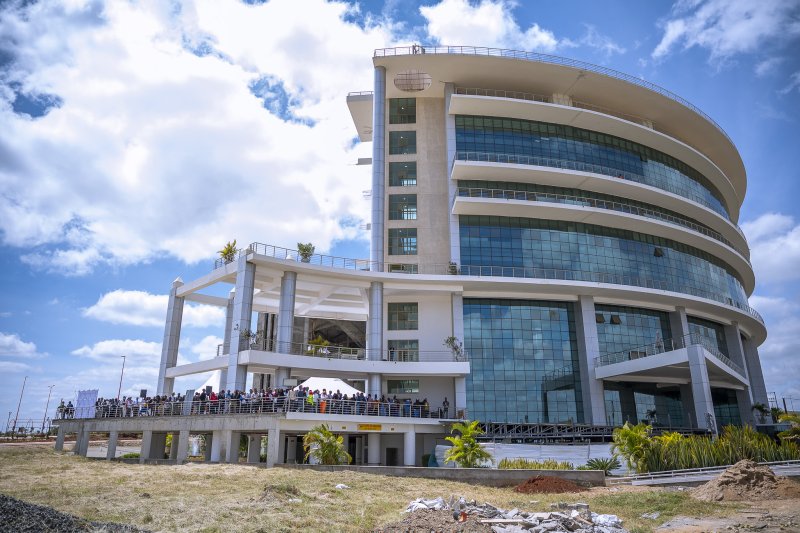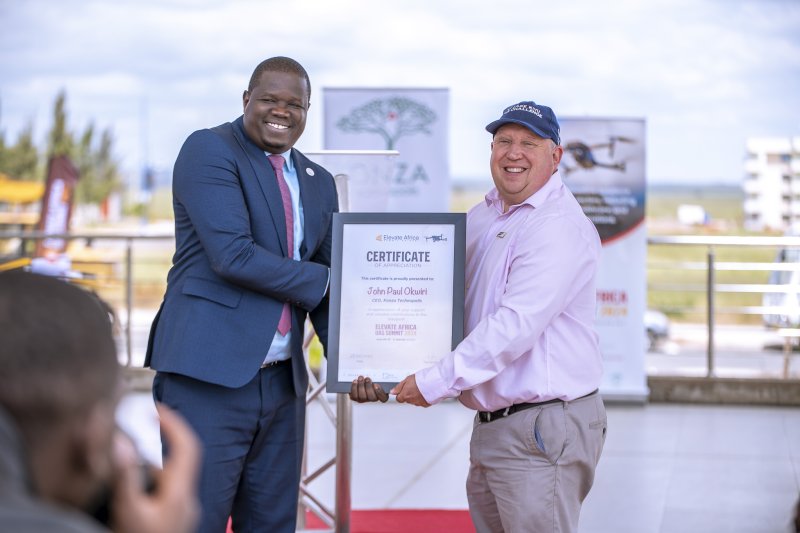
In Kenya’s Drone Corridor at Konza Technopolis, the Future of UAS Innovation
More than a sandbox for innovation, the corridor will also be an catalyst for increased economic opportunity, workforce development, and regulatory advancement.
November 26th, 2024
In recent years, the drone industry has transformed from a niche technology to a booming global sector, impacting everything from agriculture and logistics to healthcare and infrastructure. In Kenya, the creation of a dedicated drone corridor at Konza Technopolis represents a critical step forward for the Unmanned Aircraft System (UAS) ecosystem, positioning Kenya as a key hub for drone innovation and application in East Africa.
As we experienced firsthand on the second day of the Elevate Africa Summit 2024, the Kenyan drone corridor at Konza Technopolis will be a controlled airspace designated for testing and demonstration of various drone use cases, opening the door for unprecedented growth and experimentation. It will enable operators to explore advanced drone operations, including Visual Line of Sight (VLOS), Extended Visual Line of Sight (EVLOS), Beyond Visual Line of Sight (BVLOS), and Advanced Air Mobility (AAM). But more than a sandbox for innovation, this corridor will also be an engine of economic opportunity, a platform for workforce development, and a catalyst for regulatory advancement.
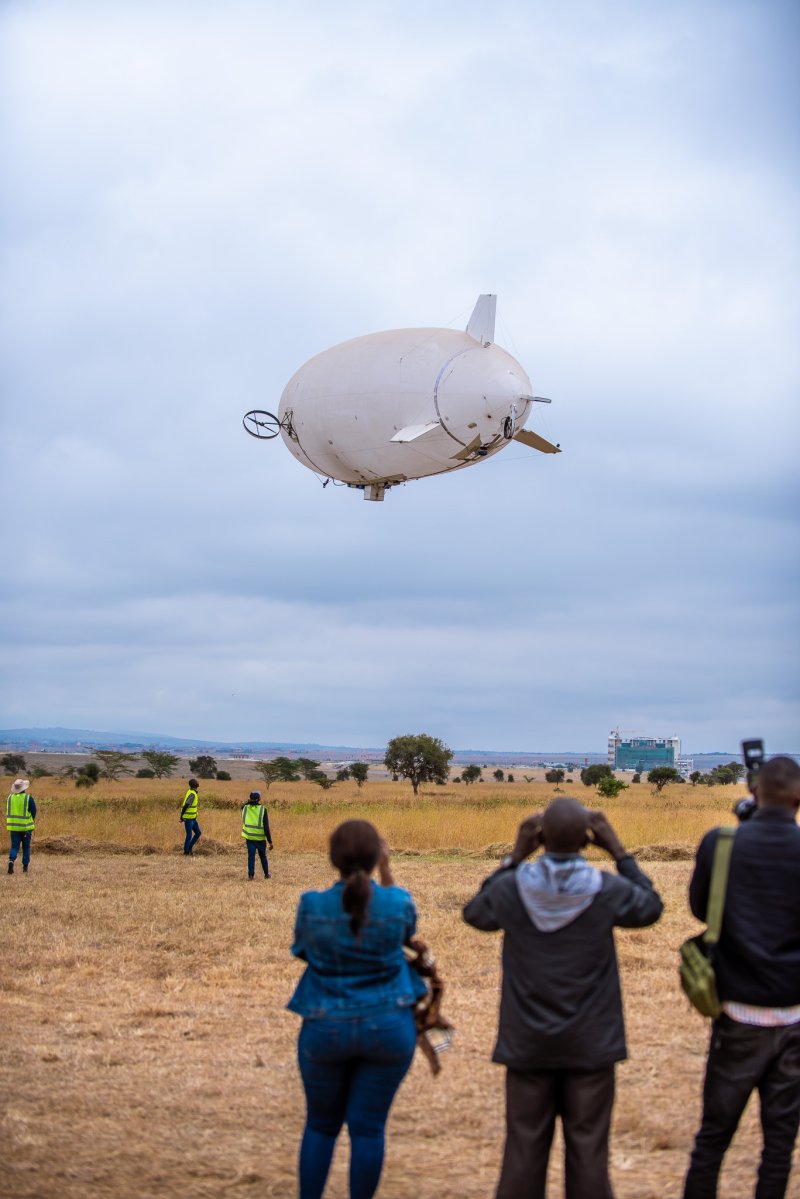
Opportunities in the Konza Drone Corridor
Testing diverse UAS applications and use cases
The drone corridor offers a secure, regulation-compliant environment for testing a range of UAS applications that span multiple industries. From agriculture to logistics, operators can refine technology and enhance operational protocols within this unique space. The infrastructure supports the needs of advanced testing in applications such as:
- Agriculture: Crop monitoring, precision agriculture, and pest control.
- Logistics: Last-mile delivery and remote logistics in underserved regions.
- Infrastructure: Mapping, surveying, and inspecting critical infrastructure like roads, bridges, and power lines.
- Healthcare: Transporting medical supplies to hard-to-reach areas, an initiative that has proven life-saving in recent trials around the world.
Pioneering advanced UAS operations
The Konza corridor will enable Kenyan drone operators to explore a spectrum of operational approaches in UAS—VLOS, EVLOS, BVLOS, and AAM:
- Visual Line of Sight (VLOS): Ideal for short-range inspection and monitoring tasks, VLOS allows pilots to keep the drone within sight, ideal for quick, responsive tasks in the agricultural and inspection sectors.
- Extended Visual Line of Sight (EVLOS): EVLOS extends VLOS capabilities by using visual observers, allowing operators to cover larger areas without losing sight of the drone.
- Beyond Visual Line of Sight (BVLOS): One of the corridor’s most promising features is the ability to perform BVLOS operations, a game-changer for logistics and delivery, as well as long-distance monitoring.
- Advanced Air Mobility (AAM): AAM initiatives, particularly urban air mobility, represent the future of drone-based passenger and cargo transport. The corridor will play a crucial role in enabling the safe, regulated testing of AAM operations in Kenya.
Economic impact and job creation
The economic potential of the drone corridor extends beyond the direct benefits of the technology. The testing corridor will spur job creation, offering roles in R&D, engineering, logistics, data analysis, and more. The corridor is poised to create new opportunities for startups, SMEs, and larger tech firms looking to develop and test drone solutions, giving Kenya a strong advantage in the UAS ecosystem and accelerating local expertise.
A platform for regulatory advancement
Establishing the Konza drone corridor also enables collaboration with regulators like the Kenya Civil Aviation Authority (KCAA). Testing and validation within a controlled corridor provide the data and insights required for Kenya to shape progressive, evidence-based regulations that support safe drone operations. Such regulations could encourage investment and solidify Kenya’s position as a UAS-friendly nation, providing a benchmark for other African countries.
A stepping stone for African UAS collaboration
The drone corridor at Konza Technopolis isn’t just a local endeavor. With its strategic position and infrastructure, Kenya has the opportunity to create a central hub for drone research, development, and deployment in Africa. The corridor can set the stage for regional collaborations, from cross-border drone logistics to shared regulatory frameworks that make it easier for African nations to operate and innovate together.
Gains for the UAS Ecosystem in Kenya
The development of the drone corridor at Konza Technopolis has numerous implications for the UAS ecosystem in Kenya, promising far-reaching gains:
- Enhanced capacity for innovation: By providing a testing space that complies with regulatory requirements, the corridor will enable UAS operators to bring new ideas to life safely and effectively.
- Youth empowerment and skills development: The corridor opens up a vast array of STEM opportunities, enabling students and young professionals to engage with cutting-edge drone technology and enter high-demand technical fields.
- Increased investment in local technology development: Kenya’s investment in a dedicated drone testing corridor will attract both local and international investors interested in supporting tech infrastructure and fostering innovation.
- A framework for data-driven decision making: By enabling drones to collect data on everything from agricultural yields to infrastructure status, the corridor will empower communities and businesses with insights that lead to better, data-driven decisions.
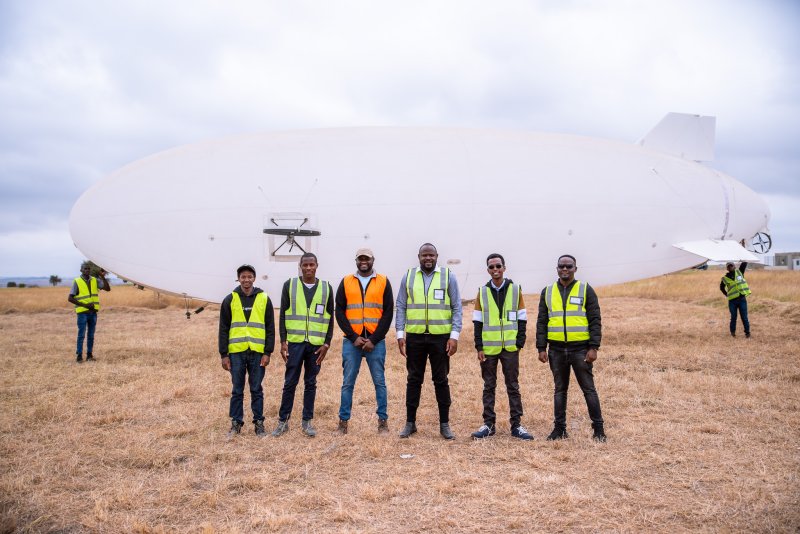
Looking Ahead
The Kenyan drone corridor at Konza Technopolis is a visionary step that aligns Kenya with the global future of technology-driven industries. With support from both government and private stakeholders, Kenya is setting the stage for a new era in UAS. Through the corridor, Kenya will not only strengthen its own economy and job market but will also become a central player in African drone technology, pushing forward an exciting new chapter for the region. Konza Technopolis is one of the Special Economic Zones the government has deliberately established to propel various technologies in Kenya. Foreign companies stand to benefit by setting up assembly and manufacturing bases targeting the African market.
As we look ahead to the operationalization of this corridor, one thing is clear: Kenya’s commitment to creating a robust, thriving UAS ecosystem stands as a model for other nations, embodying the potential of technology to drive meaningful, inclusive growth.
Category(s)
Recent Articles
View All »
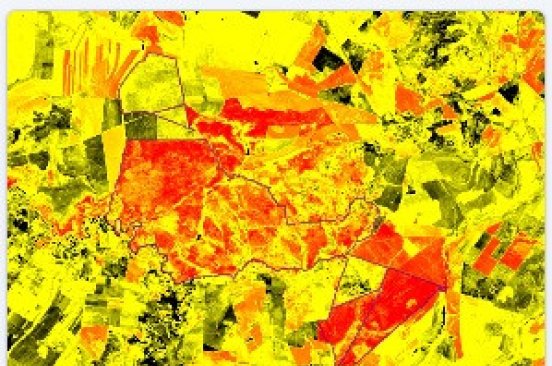
Wildfire Assessment and Web Application in Sao Paulo

